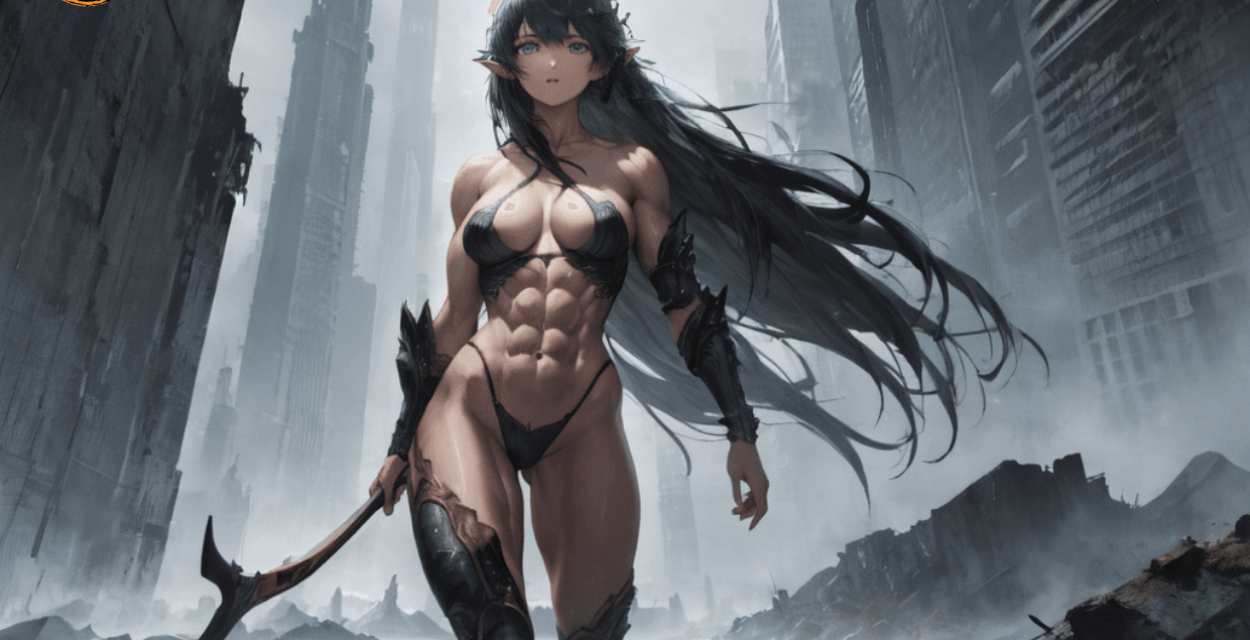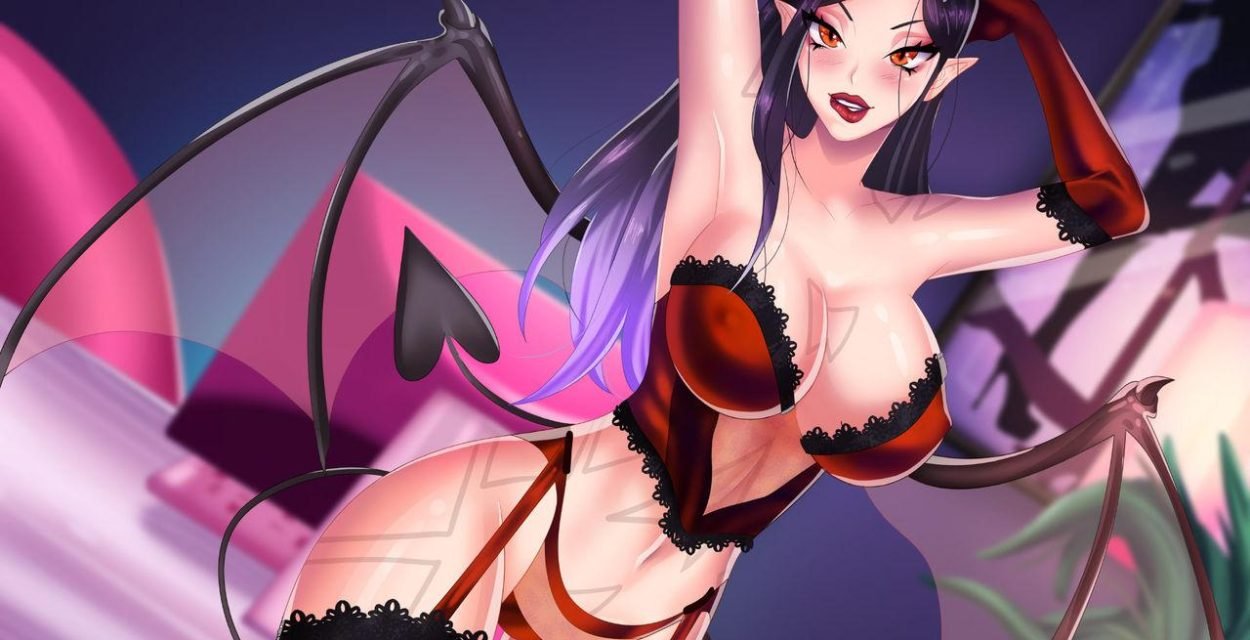
The Top 10 Most Controversial Moments in Adult Gaming History
The intersection of video games and adult content has often been a topic of heated debate and controversy. Over the years, the adult gaming industry has pushed boundaries, challenged societal norms, and sparked outrage. While some games were criticized for their content, others became cultural flashpoints that ignited discussions on censorship, morality, and the limits of artistic expression. Here’s a look at the top 10 most controversial moments in adult gaming history.
1. “Custer’s Revenge” (1982) – A Game Gone Too Far
Arguably one of the earliest and most infamous controversies in adult gaming history came with the release of “Custer’s Revenge” for the Atari 2600 in 1982. In the game, players control a naked General Custer as he dodges arrows to reach a tied-up Native American woman. The offensive and exploitative nature of the game’s premise—featuring a non-consensual encounter—sparked outrage, especially from Native American groups and women’s rights organizations.
The game’s offensive content and crude depiction of sexual violence led to protests, lawsuits, and widespread media coverage. Despite the backlash, or perhaps because of it, “Custer’s Revenge” sold over 80,000 copies. Its legacy remains one of shame and serves as an early example of the ethical questions surrounding adult gaming.

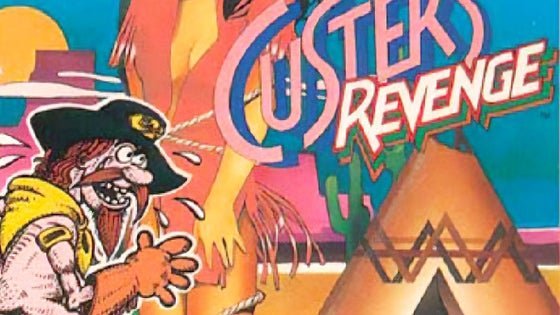
“Custer’s Revenge” was one of the first games to bring issues of morality and censorship in gaming to the forefront. Released during a time when video game regulation was minimal, it highlighted the lack of oversight in the industry. The game’s portrayal of sexual violence and its demeaning representation of both women and Native Americans triggered not only public outrage but also legal action, as advocacy groups sought to have it banned. Although it was a commercial success, the game’s content sparked heated debates about whether video games should be held to the same ethical standards as other forms of media, especially regarding depictions of violence and sexual assault.
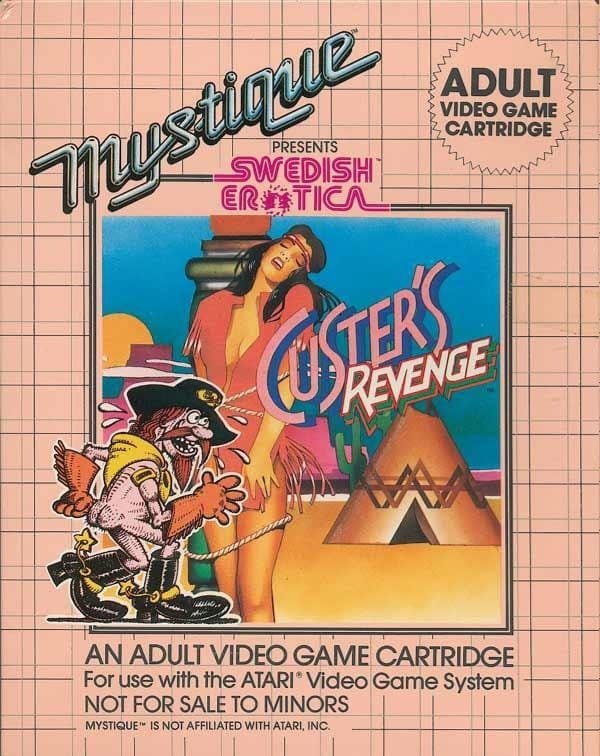
The controversy surrounding “Custer’s Revenge” also led to broader discussions about the role of video games in shaping societal values and attitudes. Critics argued that such games trivialized serious issues like sexual violence and racism, reinforcing harmful stereotypes.
This debate laid the groundwork for future conversations about the responsibilities of game developers and distributors in curating content. Over time, “Custer’s Revenge” became a symbol of the dangers of unchecked creative freedom in gaming, pushing the industry to reconsider the limits of what is acceptable in interactive entertainment.
2. The “Hot Coffee” Mod in “Grand Theft Auto: San Andreas” (2004)
Few controversies have rocked the gaming world like the “Hot Coffee” mod scandal in 2004. “Grand Theft Auto: San Andreas,” an immensely popular open-world game by Rockstar Games, featured a hidden mini-game that allowed players to engage in a sexual encounter with their in-game girlfriend. Although the scenes were originally locked, a fan-created mod called “Hot Coffee” unlocked the explicit content, revealing detailed but unfinished sexual animations.
Once the existence of the mod was publicized, it led to a massive public outcry. Politicians, including U.S. Senator Hillary Clinton, decried the game’s content, leading to an investigation by the Entertainment Software Rating Board (ESRB). The ESRB subsequently changed the game’s rating from “Mature” (M) to “Adults Only” (AO), leading to a recall and severe financial repercussions for Rockstar. The “Hot Coffee” scandal also sparked a larger conversation about hidden content, parental controls, and the responsibility of game developers.


GRAND THEFT AUTO – SAN ANDREAS
Experience the ultimate open-world action in Grand Theft Auto: San Andreas. Explore a massive, immersive world, complete missions, and build your empire. Available now!
If you click this link and make a purchase, we earn a commission at no additional cost to you.
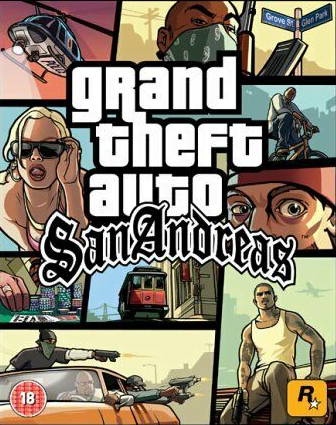
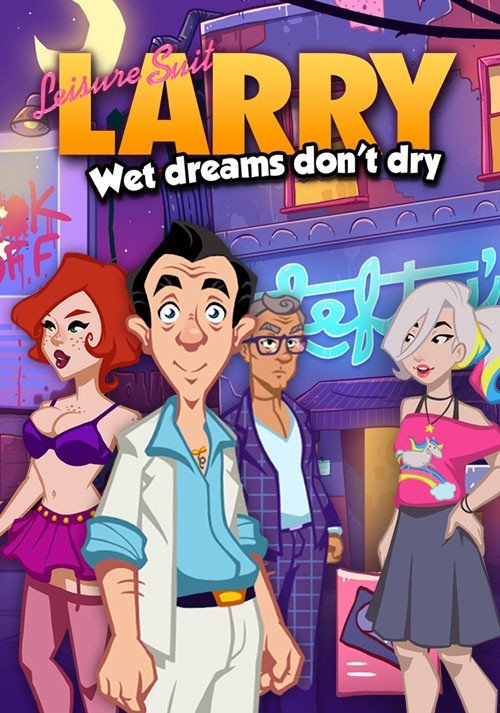
3. “Leisure Suit Larry” (1987–Present) – A Comedy or Crude?
The “Leisure Suit Larry” series, created by Al Lowe, has always been on the fringes of controversy. First released in 1987, the game follows Larry Laffer, a hapless middle-aged man in pursuit of love and sexual encounters. While the games are primarily comedic and filled with innuendo rather than explicit scenes, they have consistently drawn criticism for their depictions of women and sexual themes.
Though lighthearted and often more suggestive than outright explicit, the series was initially banned in some countries and faced numerous challenges from retailers reluctant to stock it. Despite this, “Leisure Suit Larry” has had a long and successful run, spanning over three decades, and remains an iconic part of adult gaming history.
The humor in the “Leisure Suit Larry” series is often characterized by its reliance on sexual innuendos and stereotypical portrayals of women, which has led to ongoing criticism over the years. While some players appreciated the series for its tongue-in-cheek approach and its playful, self-deprecating protagonist, others found the jokes to be outdated, reinforcing harmful gender stereotypes and reducing women to mere objects of desire.
The games were released during a time when video games were primarily marketed to young men, and “Leisure Suit Larry” catered to that demographic with its sexually charged humor, making it controversial yet popular.
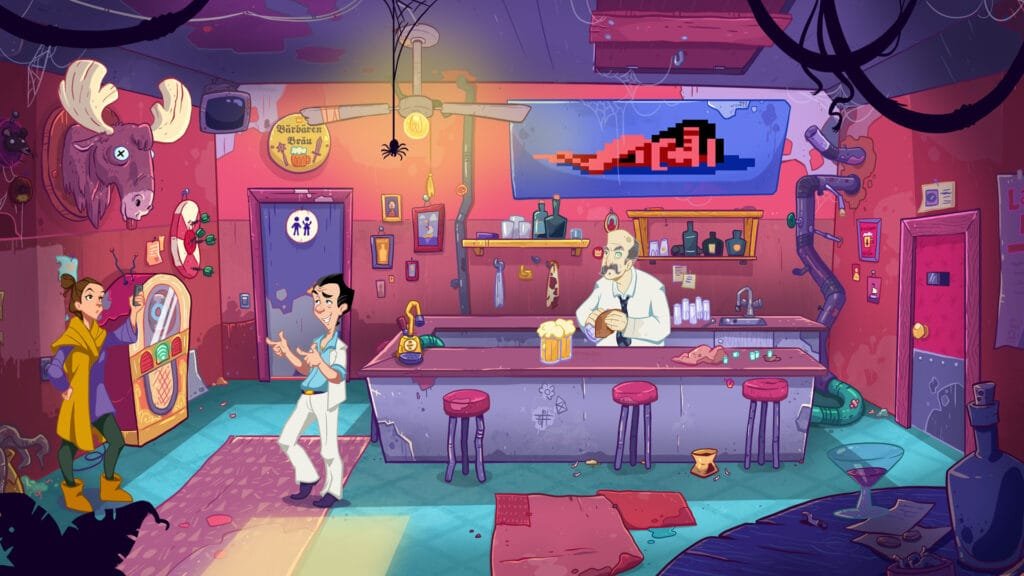
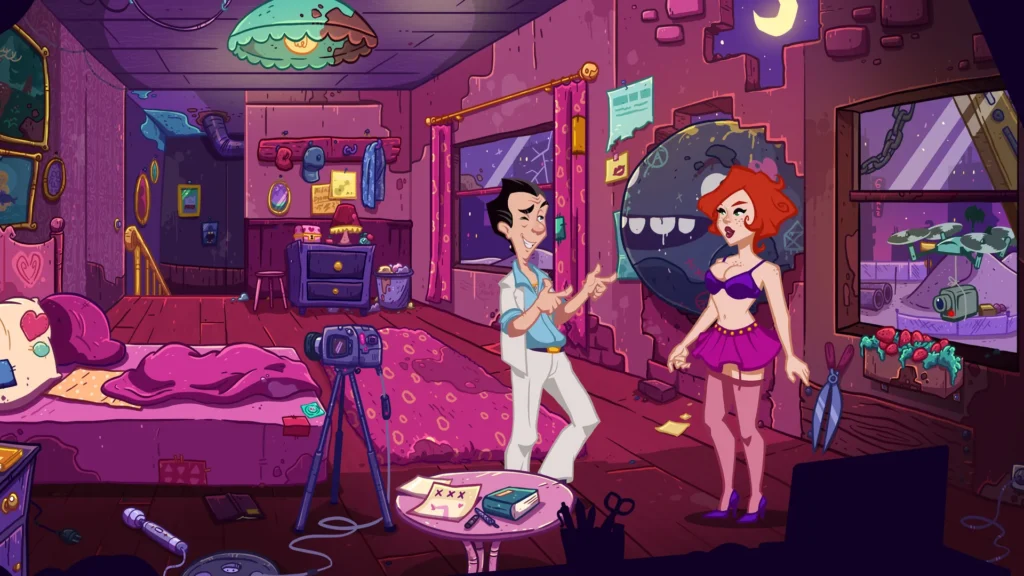
Despite the criticism, the “Leisure Suit Larry” series has managed to endure, thanks in part to its cult following and nostalgic appeal. Over time, the games evolved with changing cultural attitudes, incorporating more modern elements while maintaining their core comedic identity.
The series’ success highlights the delicate balance that some adult-themed games attempt to strike—blurring the line between humor and offensiveness. While “Leisure Suit Larry” has never been as explicit or graphic as other adult games, its legacy as both a comedic icon and a source of controversy remains firmly rooted in gaming history.
LEISURE SUIT LARRY
Join the hilarious adventures of Larry in Leisure Suit Larry! Solve quirky puzzles, explore fun environments, and enjoy the cheeky humor. Get your copy today!
If you click this link and make a purchase, we earn a commission at no additional cost to you.
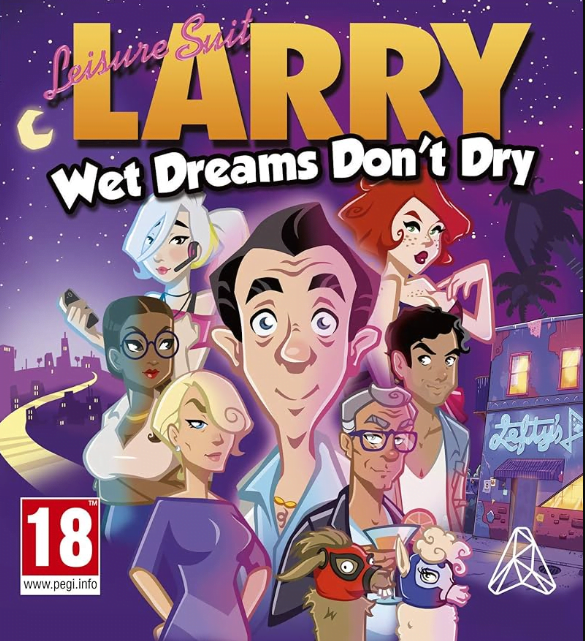

4. “RapeLay” (2006) – The Game That Crossed All Lines
Few games have sparked as much outrage and disgust as the Japanese game “RapeLay,” developed by Illusion Soft in 2006. In the game, players take on the role of a man who stalks and assaults women on public transportation. The game’s explicit and abhorrent subject matter quickly drew widespread condemnation from human rights organizations, women’s groups, and governments around the world.
“RapeLay” was banned in numerous countries, including the U.S., the UK, and Argentina. It became a central point of debate about the ethical limits of game content, and even within Japan, where the game was originally released, many voiced concerns about the lack of regulation around adult content in gaming. The game’s controversy ignited international discussions about free speech, artistic freedom, and the moral responsibilities of game developers.


The backlash against “RapeLay” also led to a broader conversation about the role of video game platforms and distributors in regulating offensive content. Major retailers and digital storefronts were quick to remove the game, and its existence became a cautionary tale about how far games can push boundaries before crossing into unacceptable territory.
The controversy surrounding “RapeLay” highlighted the need for clearer guidelines and industry standards for adult content in games, sparking ongoing discussions about the balance between creative freedom and social responsibility in the gaming industry.
5. “Manhunt 2” (2007) – Censored for Extreme Violence
Though not primarily an adult game in terms of sexual content, “Manhunt 2” became notorious for its extreme violence and adult themes. Developed by Rockstar Games, “Manhunt 2” was initially given an AO (Adults Only) rating by the ESRB due to its graphic depictions of murder, torture, and psychological horror. The game was banned or heavily censored in several countries, including the UK and Ireland, where the British Board of Film Classification (BBFC) refused to give it a rating.
In response to the AO rating, Rockstar modified the game to reduce the intensity of some of the more violent scenes, and it was re-rated as “Mature” in the U.S. Despite these changes, “Manhunt 2” remained a highly controversial title and reignited the ongoing debate over violence in video games and its potential impact on players.

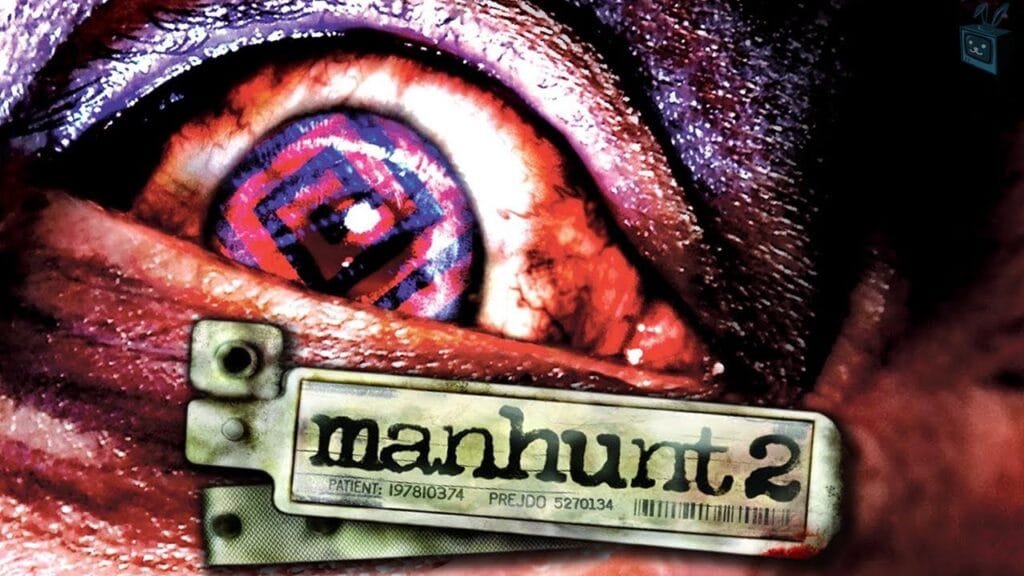
6. The Introduction of VR Adult Games (2010s)
The 2010s marked a groundbreaking era in the realm of adult entertainment with the introduction of virtual reality (VR) adult games. As VR technology became more accessible and sophisticated, developers began to explore its potential for creating immersive adult experiences that transcended traditional media.
These games offered users a level of interactivity and engagement that was previously unattainable, allowing players to step into highly detailed virtual environments and interact with characters in a more intimate manner. This innovation not only expanded the boundaries of adult content but also raised discussions about consent, ethics, and the impact of such experiences on players’ perceptions of intimacy and relationships.


The emergence of VR adult games drew a mix of enthusiasm and concern. While many celebrated the technology for providing new avenues for exploration and expression, critics worried about the implications of hyper-realistic simulations on real-world behaviors and attitudes toward sex. Additionally, the industry faced challenges related to content regulation and the need for appropriate safety measures to protect users.
Overall, the introduction of VR adult games in the 2010s signaled a significant shift in how adult content could be consumed, sparking conversations about technology, morality, and the future of intimacy in a digital age.
View Our VR Games!!!
7. “Hatred” (2015) – A Game of Pure Violence
“Hatred” is a title that firmly etches itself into the annals of controversial video game history, not just for its content but for the discussions it sparked around violence in gaming. Released in 2015 by Polish developer Destructive Creations, this shooter game plunges players into the shoes of a deeply misanthropic character who embarks on a chilling mission to murder innocent civilians. The game’s stark and graphic violence, coupled with its nihilistic themes, sets it apart from typical offerings in the genre.
Upon its release, “Hatred” quickly became a lightning rod for debate. Its extreme depictions of violence led to significant backlash, with critics accusing the game of glorifying mass violence and promoting a disturbing worldview. The controversy was so intense that it resulted in the game being temporarily removed from the Steam Greenlight platform, only to be reinstated later due to overwhelming public demand.
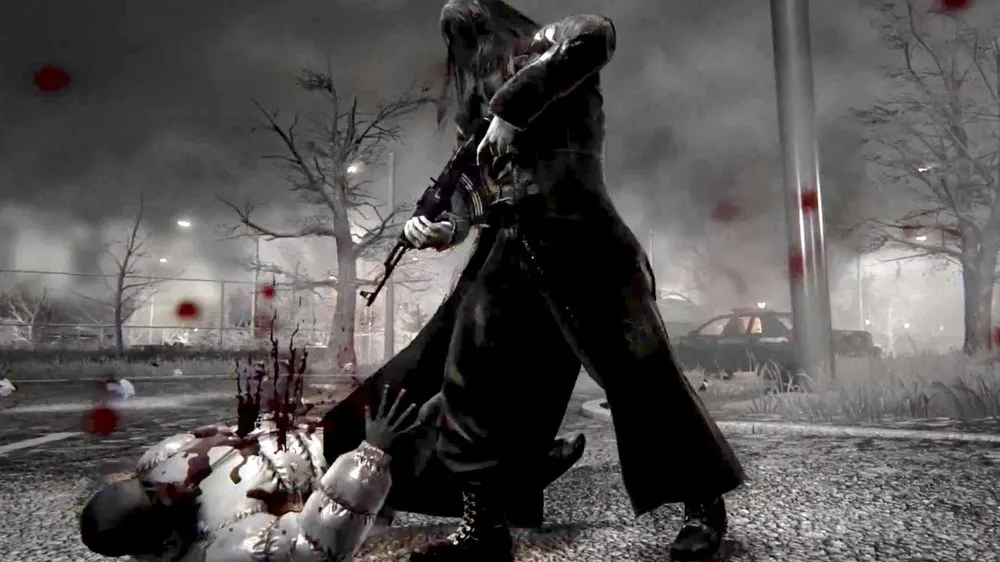

The discussions that “Hatred” ignited went beyond mere entertainment value. The game highlighted a critical tension in the gaming community between the principles of free speech and the potential harm that such violent content might inflict. As it faced bans in several countries, the conversations surrounding its release raised essential questions about the responsibilities of developers and the impact of violent media on society. Ultimately, “Hatred” remains a polarizing title, challenging players and critics alike to confront the darker facets of human nature and the boundaries of artistic expression in gaming.

8. The “Mass Effect” Sex Scene Controversy (2007)
In 2007, “Mass Effect,” a groundbreaking sci-fi role-playing game developed by BioWare, emerged not only as a critical darling but also as a center of controversy, particularly surrounding its romantic subplots and brief sex scenes. This game, known for its deep storytelling and rich character development, allowed players to form meaningful relationships with various characters, including romantic partnerships. These relationships culminated in a short, non-explicit sex scene that, while tame by most standards, sparked significant backlash from conservative media outlets.
The controversy escalated when Fox News and other platforms condemned “Mass Effect,” arguing that it promoted inappropriate sexual content to minors. Critics labeled the situation “SexBox,” highlighting the sensationalist nature of the coverage. The dialogue quickly turned into a broader discussion about the appropriateness of romantic and sexual themes in video games, with opponents arguing that such content could negatively influence younger audiences.


However, the uproar had an unintended consequence. As the exaggerated claims about the game’s content circulated, many gamers and media commentators rushed to defend “Mass Effect.” The backlash not only debunked the more sensationalist narratives but also shone a spotlight on the game itself, leading to increased sales and attention. Fans and advocates pointed out that the game’s portrayal of romance was nuanced and integral to character development, reflecting real human relationships rather than merely serving as gratuitous content.
Ultimately, the “Mass Effect” controversy became a pivotal moment in the discussion of mature themes in video games, challenging the industry to navigate the fine line between storytelling and appropriateness. As a result, “Mass Effect” not only solidified its place in gaming history for its innovative gameplay and storytelling but also for igniting a critical conversation about the evolving role of sex and romance in interactive media. The incident underscored the impact that media narratives can have on public perception and highlighted the ongoing struggle for video games to be recognized as a legitimate art form.
MASS EFFECT
As you unfold the mysteries of the Andromeda Galaxy and the hope for humanity lies on your shoulders – You must ask yourself How far will you go?
If you click this link and make a purchase, we earn a commission at no additional cost to you.

9. Steam’s Decision to Allow Adult Games (2018)
In 2018, Valve Corporation made a significant and controversial decision regarding its digital distribution platform, Steam, by officially allowing adult games, including those featuring explicit content, onto the marketplace. This move marked a notable shift in the gaming industry’s approach to adult content, reflecting broader changes in societal attitudes toward sexuality and freedom of expression.

Prior to this decision, Steam had faced criticism for its inconsistent policies regarding adult games. Many titles with mature themes had been removed or rejected, leading to frustration among developers and gamers alike. The lack of clear guidelines left many in the industry questioning what constituted acceptable content. Valve’s announcement sought to address these concerns by adopting a more permissive stance, stating that the platform would no longer act as a gatekeeper for content deemed “offensive” or “adult,” so long as it didn’t violate local laws.
This policy change prompted immediate reactions from various corners of the gaming community. Supporters praised the decision as a victory for creative freedom, emphasizing that developers should have the right to explore complex and mature themes without fear of censorship. Many indie developers, in particular, welcomed the opportunity to present their work on a major platform without facing the barriers previously imposed by Steam’s content policies.


Conversely, critics raised concerns about the potential for explicit content to overshadow other games on the platform, fearing that the marketplace could become cluttered with adult titles. There were also worries about the implications for younger audiences, as Steam is a popular platform among minors. Valve responded by implementing age verification measures to help mitigate these concerns, ensuring that adult content would be appropriately labeled and restricted.
The decision sparked a wider conversation about the role of adult content in video games, with discussions focusing on the importance of artistic expression and the evolution of gaming as a medium. Some industry analysts argued that this move could pave the way for more mature storytelling and character development, allowing games to tackle themes that resonate with adult audiences in meaningful ways.
Overall, Valve’s 2018 decision to allow adult games on Steam not only reshaped the platform’s content landscape but also contributed to an ongoing dialogue about the place of mature themes in gaming. It underscored the balance between creative freedom and responsibility, highlighting the complexities of content regulation in an increasingly diverse and dynamic industry. The ramifications of this policy shift are still felt today, as it continues to influence the conversation around video game content and its cultural significance.
10. “The Witcher 3: Wild Hunt” (2015) – Mature Storytelling Meets Adult Themes
“The Witcher 3: Wild Hunt” (2015) is celebrated for its mature storytelling, moral complexity, and deep world-building. Its depiction of sex and romance is integrated naturally into the narrative, reflecting emotional relationships rather than serving as mere fan service. Geralt’s relationships with key characters like Yennefer and Triss are essential to the plot, adding emotional depth to the game. However, the game faced criticism for certain sex scenes, with some feeling they were gratuitous. Despite this, it was largely praised for balancing adult themes without crossing into exploitative territory.

“The Witcher 3” not only pushed the boundaries of storytelling in video games but also set a new standard for how mature themes can be thoughtfully integrated into gameplay. The world of the game is rife with complex political dynamics, social issues, and personal conflicts that mirror real-world struggles. Players are frequently forced to make tough choices with significant consequences, creating an emotional connection with the story that transcends typical video game narratives. This depth allows the game to explore mature themes such as war, loss, discrimination, and love in a way that feels authentic and impactful.
Despite its handling of mature content, some criticism arose regarding the portrayal of women in the game, with certain depictions of female characters and their sexualization sparking debate. While the relationships and sex scenes involving Geralt are treated with emotional complexity, some players and critics felt that other female characters were overly objectified or lacked the same depth. This sparked a larger conversation about how video games approach gender and sexuality, even as “The Witcher 3” was praised for its broader storytelling achievements.

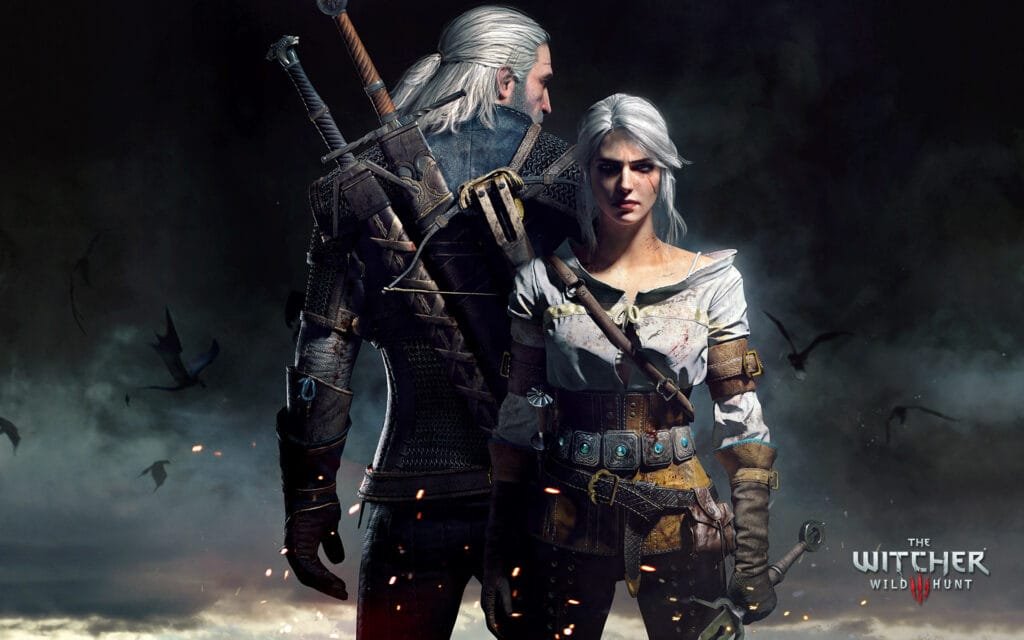

THE WITCHER 3
One of the most acclaimed RPGs of all time Now ready for a new generation
Conclusion
Adult gaming has been fraught with controversy from the very beginning, as developers have pushed the boundaries of what is acceptable in interactive entertainment. From early scandals like “Custer’s Revenge” to the VR-driven debates of today, these moments highlight the ongoing tension between creative freedom and societal values. As technology continues to evolve, the adult gaming industry will undoubtedly face new challenges and controversies, prompting even more discussions about ethics, censorship, and the future of interactive media.





